|
It's not really something I am fond on putting my marking out into the public domain, so I'll start it off straight away with the reason I feel uncomfortable to do so. I know that my marking isn't yet perfect, although I do beleive I am doing my best at this point in time. I have been constantly re-assessing my feedback this year and refining the way I approach it, earlier in August I had just over 100 students fill in a questionnaire asking them what they thought of the feedback they received in mathematics, and asked them to write in some qualitative feedback. This was actually really useful, and I would definitely recommend trying it out. Ultimately, this has helped lead to where I currently am with my own feedback this new term. As teachers, marking is quite personal, especially if you have spent hours doing it! So having others pass judgement on it is always going to be a tough conversation (if the conversations isn't a positive one anyway).
So first of all, all of my marking tends to take place in class, ALL classwork is marked by students in green pen, there is rarely a task that we ever do in class that we don't get instant feedback on and self assessed in class. I find that it very quickly allows me to undertake my AFL around the room when you can see ticks or crosses very clearly in the students books. So the only part that I actually onduct a detailed mark on is end of topic assessments and teacher assessed homeworks, then finally on student responses to feedback. Fortunately these tend to fall every 12-14 days which falls in line with the schools marking policy of two weeks. Below is a typical topic assessment, this is with a 'bottom set' year 7 class I teach 3 times a week. While marking the assessments I have (for this particular assessment) 5 different feedback sheets in front of me; simplifying fractions, finding fractions of an amount, multiplying/dividing fractions, adding/subtracting fractions, and converting improper fractions and mixed numbers. As I am marking the assessment, I then pick up the sheet which each student needs to improve on and provide their feedback on this particular sheet. At the start of the next lesson students then stick these sheets in on a double page spread and work on their responses on the opposite page. What I had found previously was that writing in a question was taking me an extra few minutes per book, and then once in class it was extremely difficult to ensure that all students had completed that question as one student would finish in a few minutes where as others would need much longer. This is why I have put these new sheets together, it gives students time to consolidate, challenge and extend the topic they struggled on and allows them to work through reasoning and problem solving style questions in line with the new GCSE. Some examples of books from this year 7 class are shown below: So far, after around 9-10 DIRT sessions this term across all my classes, students have been really engaged in these feedback sessions, there is enough work to be getting on with that it allows me to get around the class and provide verbal feedback to those who struggled more than others on particular topics, while those who are happy to work through the whole sheet can move onto all levels of questions and get some challenge on the problem solving questions. I have been dedicating around 30 minutes of a lesson to these DIRT sessions so far and have found this is just enough time that everyone will be able to complete the 'fluency' questions while others are completing all levels of questions. The only written feedback I am now giving is on the 9-1 Feedback Sheets I have been uploading. It's taking me on average 1 hour to mark a set of 30 mini assessments and provide feedback and actions for each student. And this is happening after every topic or series of subtopics, for example my year 9's have been doing algebraic fractions and we have recently done an assessment on simplifying them. Students then had to work on either factorising quadratics, simplifying basic algebraic fractions or simplifying algebraic fractions involving quadratics. See example image below: Anyway that's what I'm doing! If you have been using these in a different way or have any ideas then please let me know! You can access all of these sheets on the link below: 9-1 Feedback Sheets
10 Comments
Louise Busby
1/25/2016 12:40:46 am
Hi, Really like the feedback strategy and think it would work well for me. Just wondered if you are making the topic assessments available online as I would like to try the two things out together?
Reply
Grant
1/27/2016 11:34:00 pm
Hi Louise, I am going to upload some of the topic assessments tonight. They definitely work well when combined with the feedback sheets. I'm going to put up another blog this weekend showing the full process I am doing for my year 10's.
Reply
Jordan
2/19/2016 03:36:44 pm
Hi Grant,
Alex
1/27/2016 04:10:30 pm
Hi,
Reply
Grant
1/27/2016 11:41:53 pm
Hi Alex, the feedback sheets I put together relatively quickly although it is an ongoing project as and when I meet a new topic. A few people online have been helping to contribute which has helped the collection grow.
Reply
natalie clayton
6/23/2017 11:41:39 am
I like these feedback sheets and would love to try them. Are the assessments available anywhere? thanks
Reply
Arwah Chakera
5/9/2018 01:52:20 pm
Hi
Reply
Anisha
6/15/2019 04:07:33 am
Hi, I love the style of these! We have had FAR marking for a year now and these would save so much time and energy so that feedback can actually help students to progress. Is there anywhere you have examples of what you use for your teacher assessed tasks?
Reply
3/25/2020 07:33:03 am
These are incredibly helpful especially the poster of QR codes to all of the worksheets - that's actually give me a really good idea of how we can organise some of the past papers on our website. Thank you!
Reply
Leave a Reply. |
Search for a topic
Categories
All
Archives
May 2018
|
|
Maths Resources @AccessMaths
|
©AccessMaths 2015
|

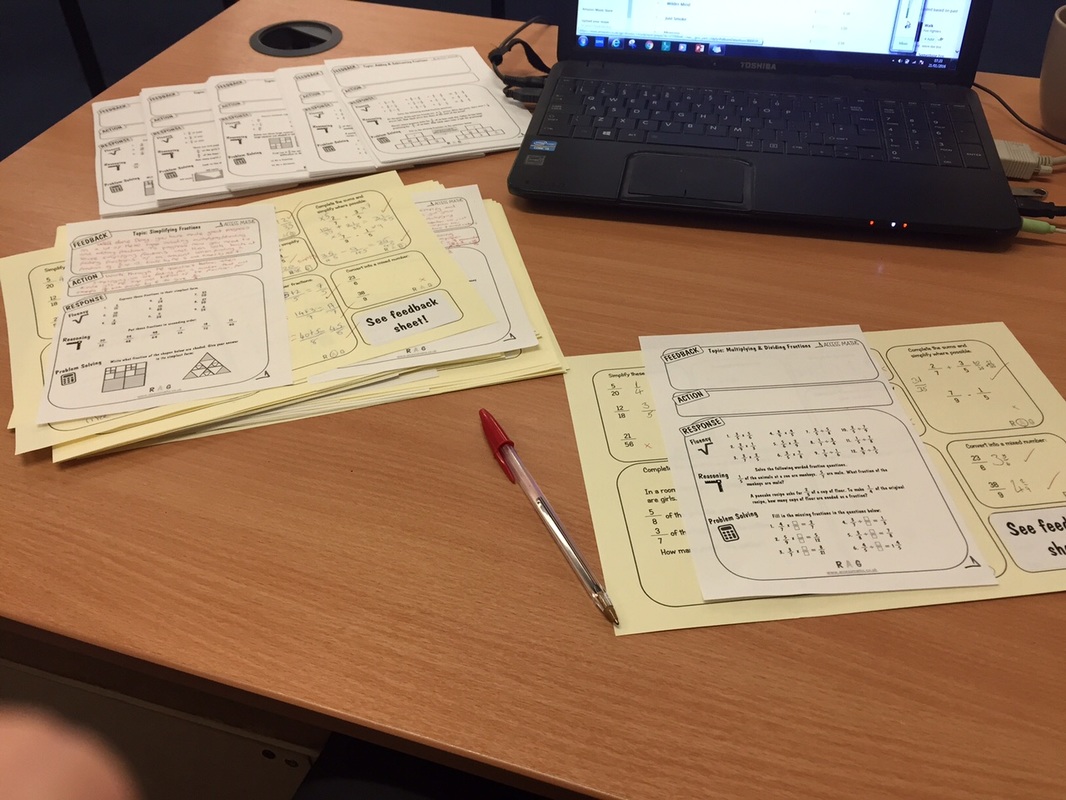
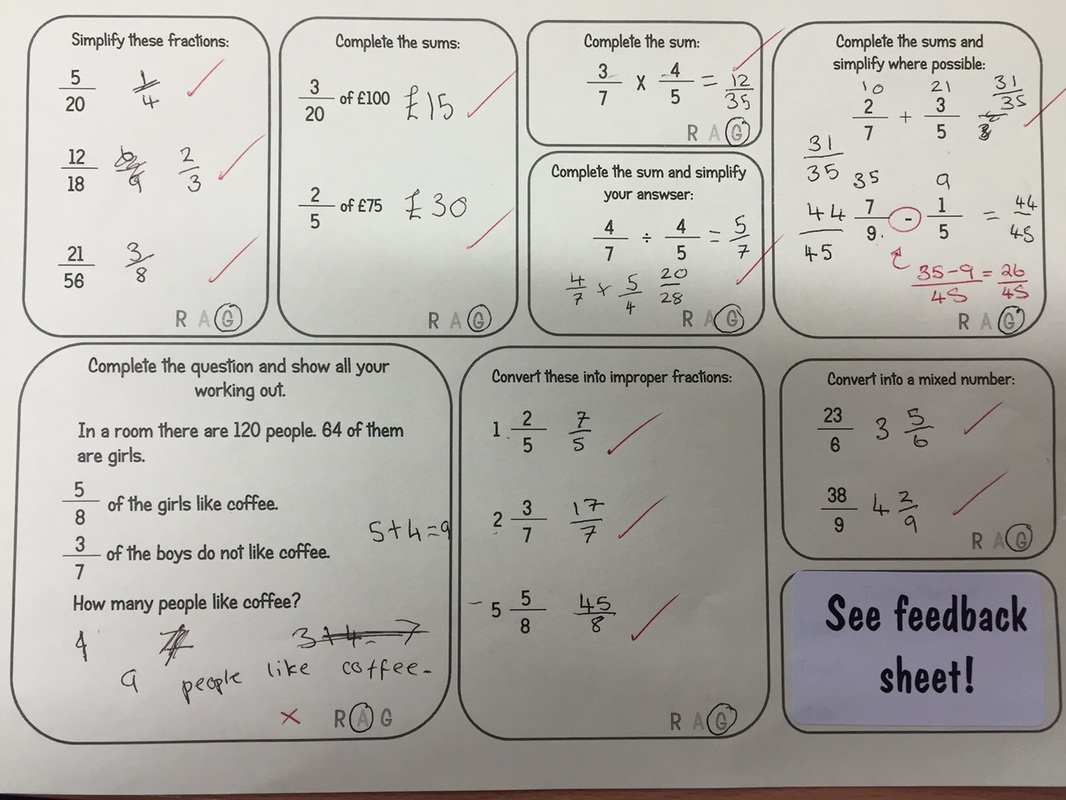
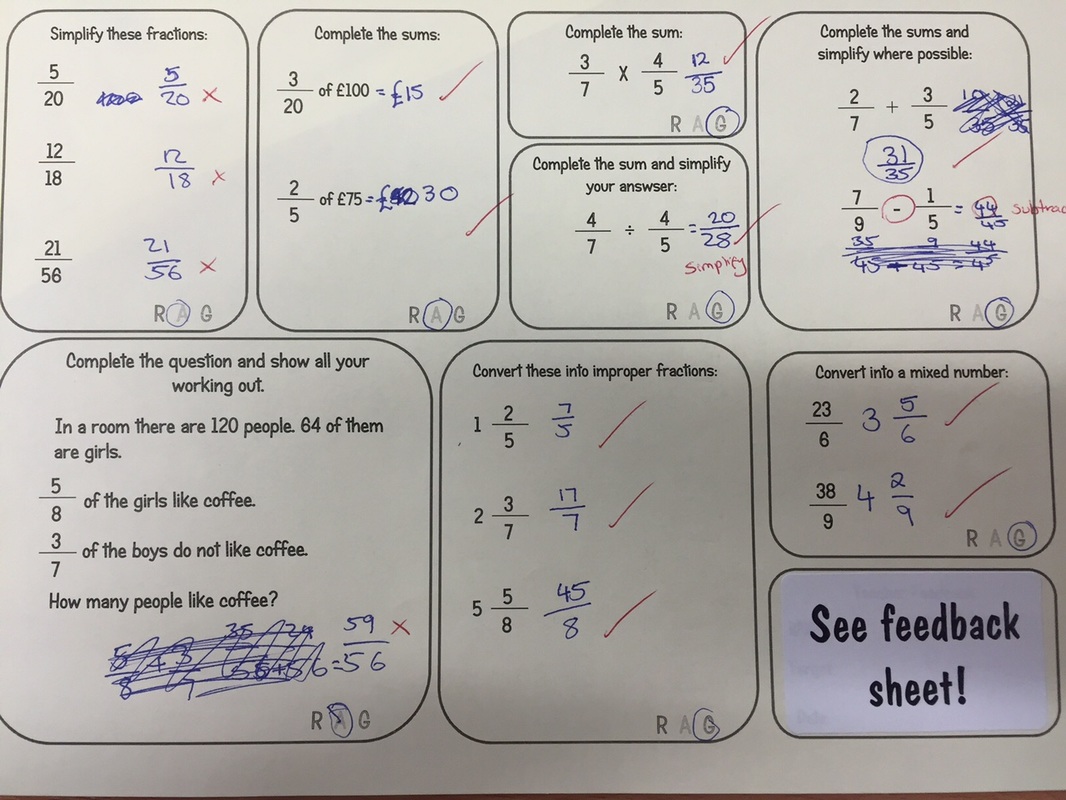
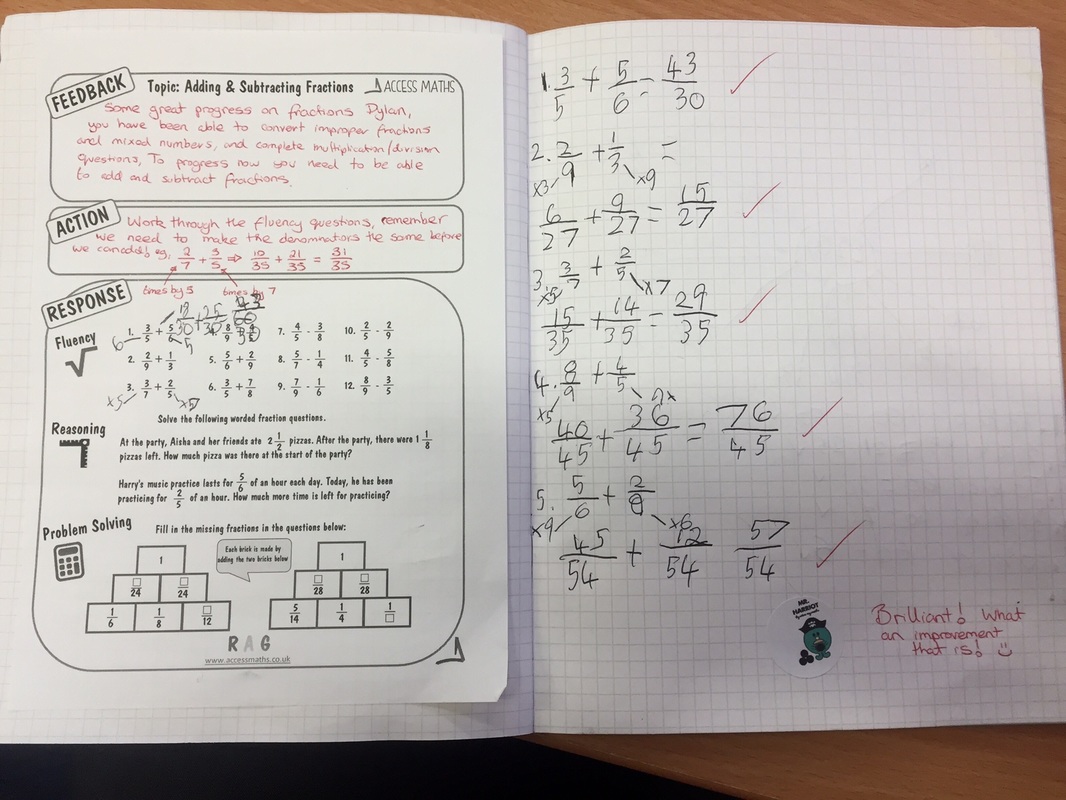
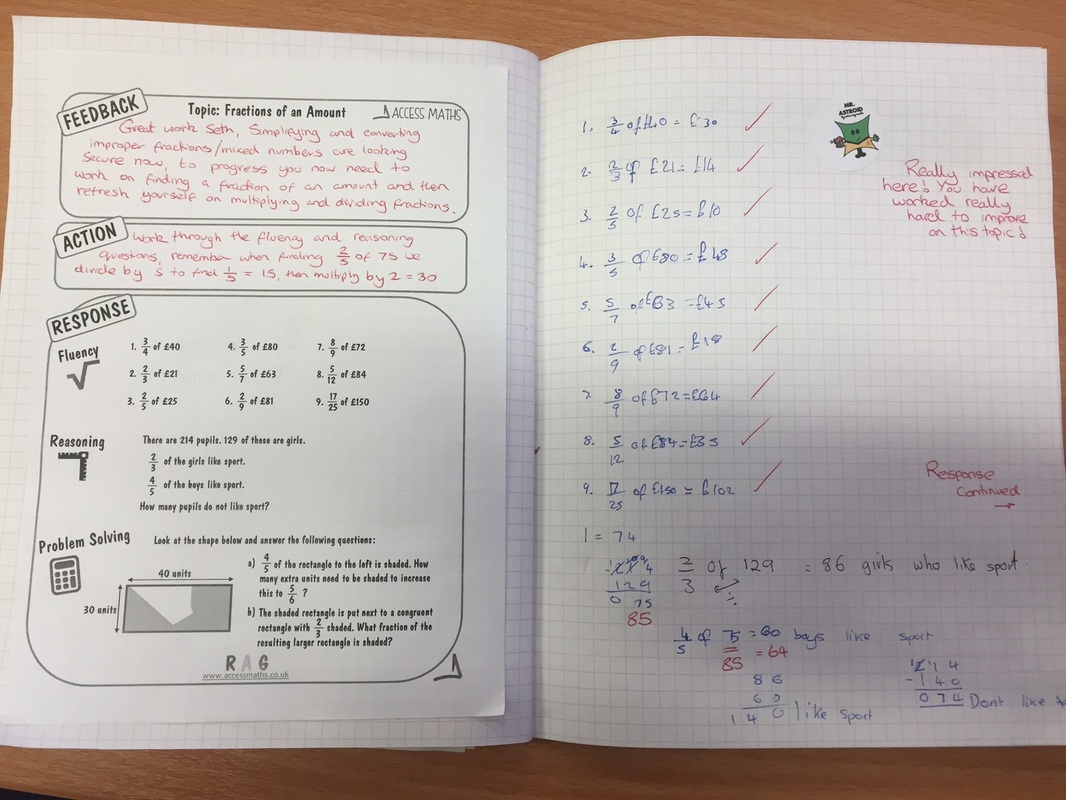
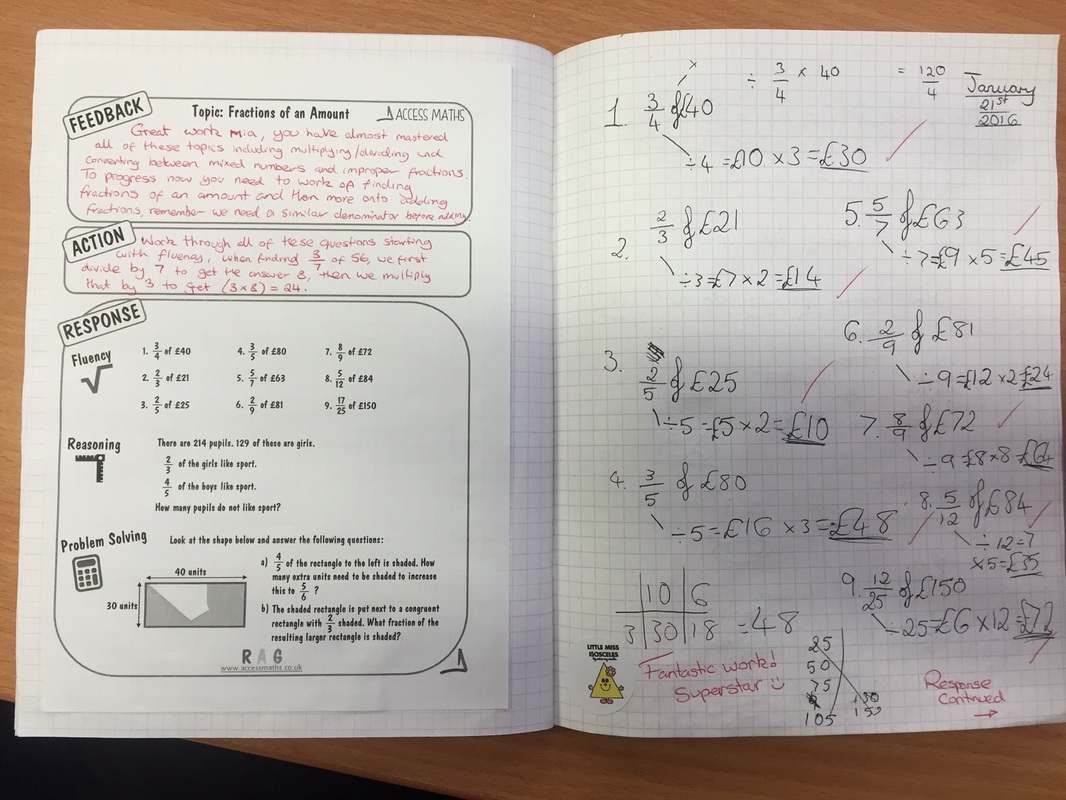
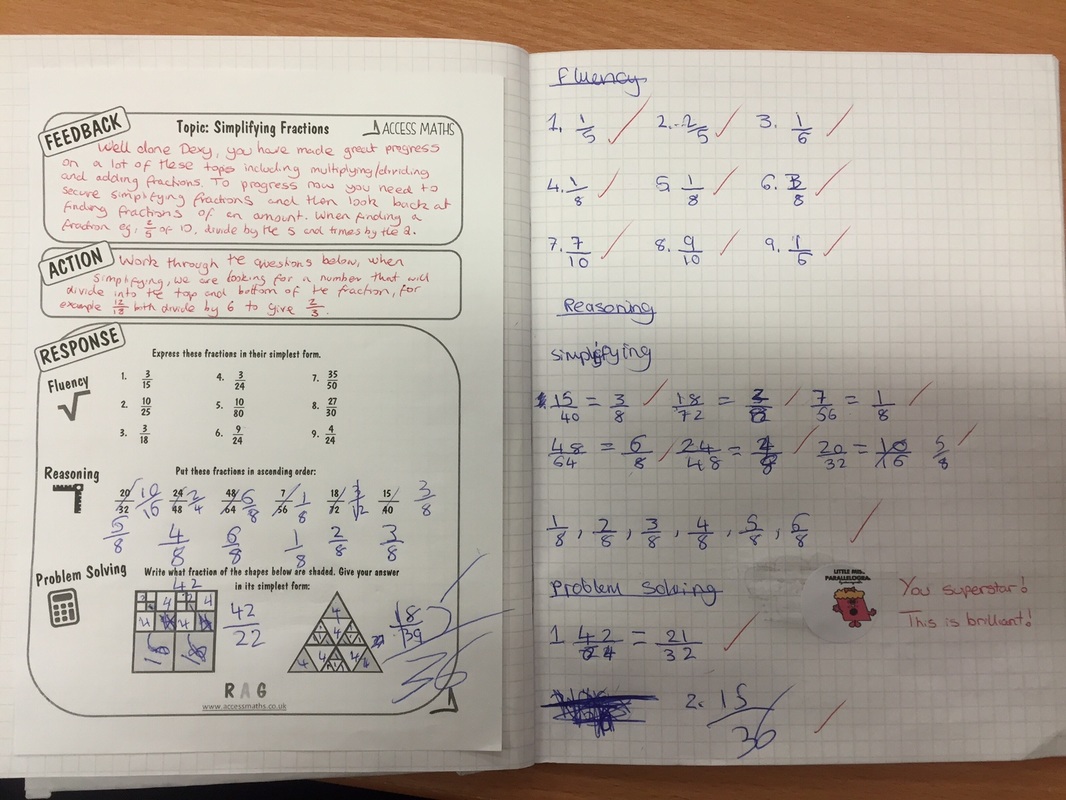
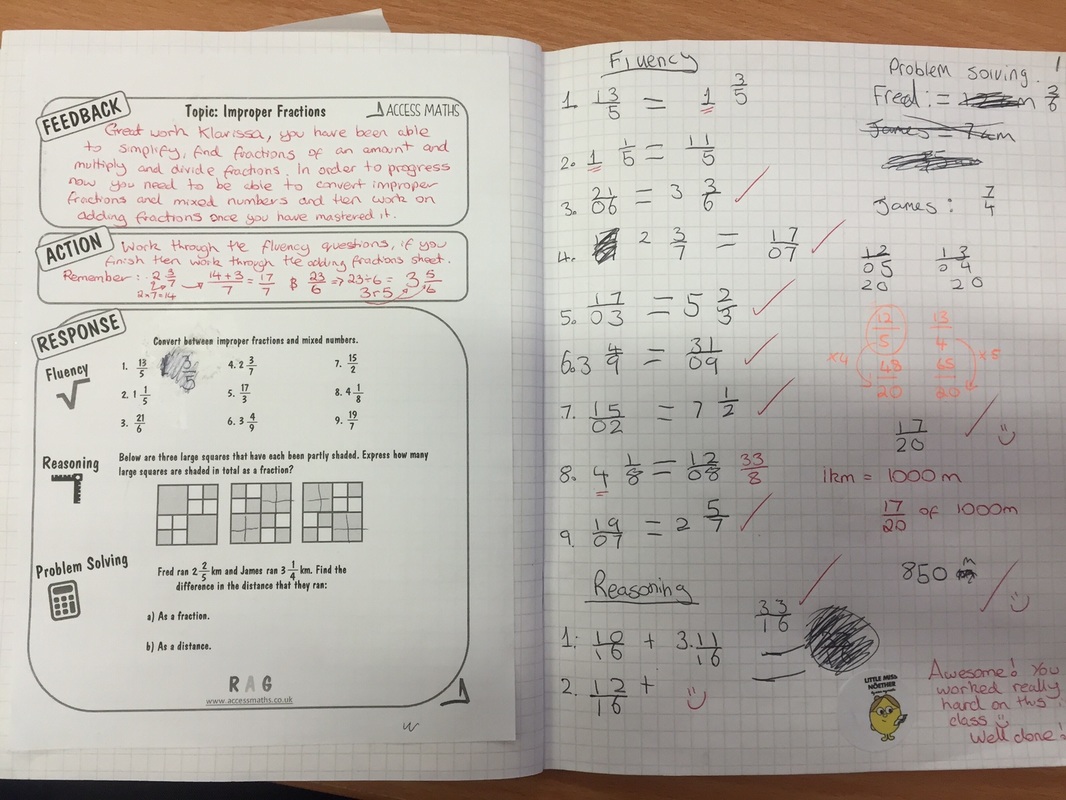
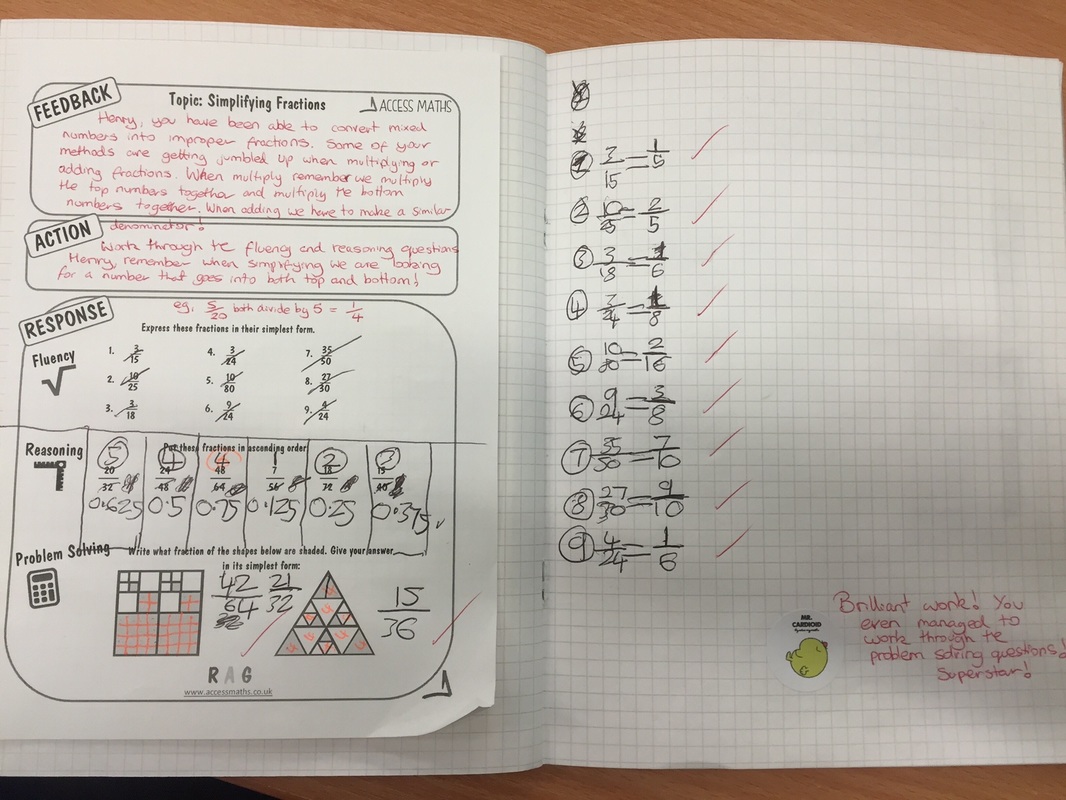
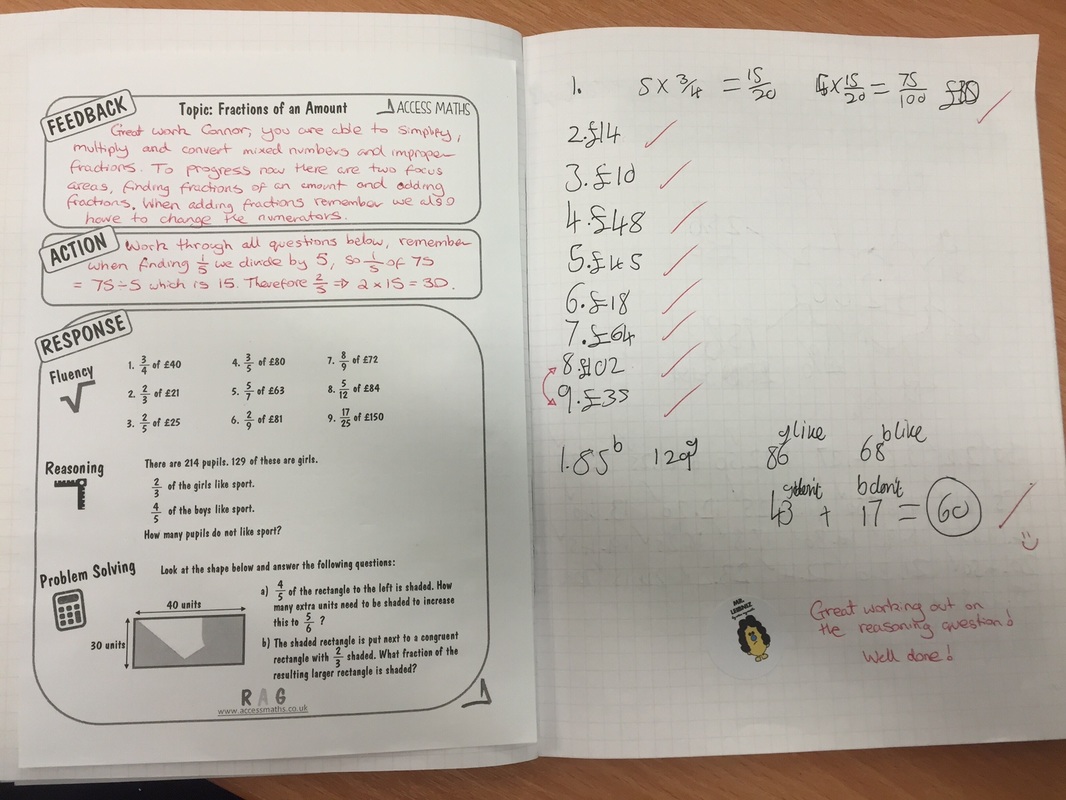
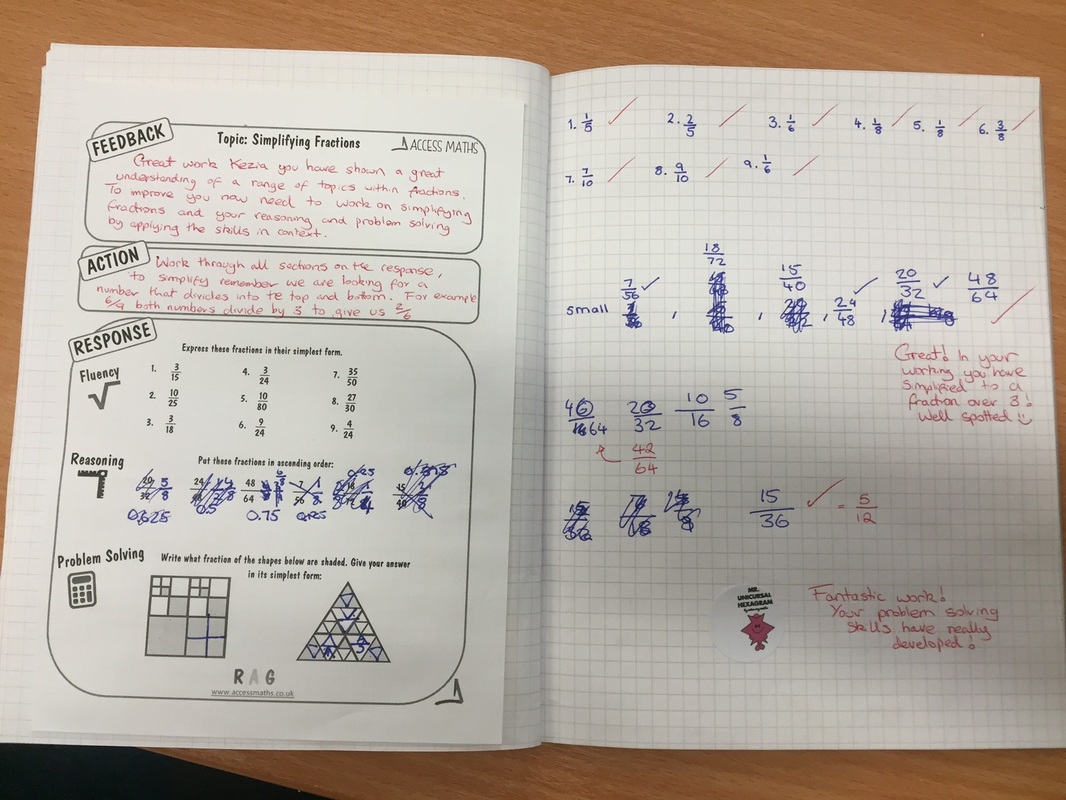
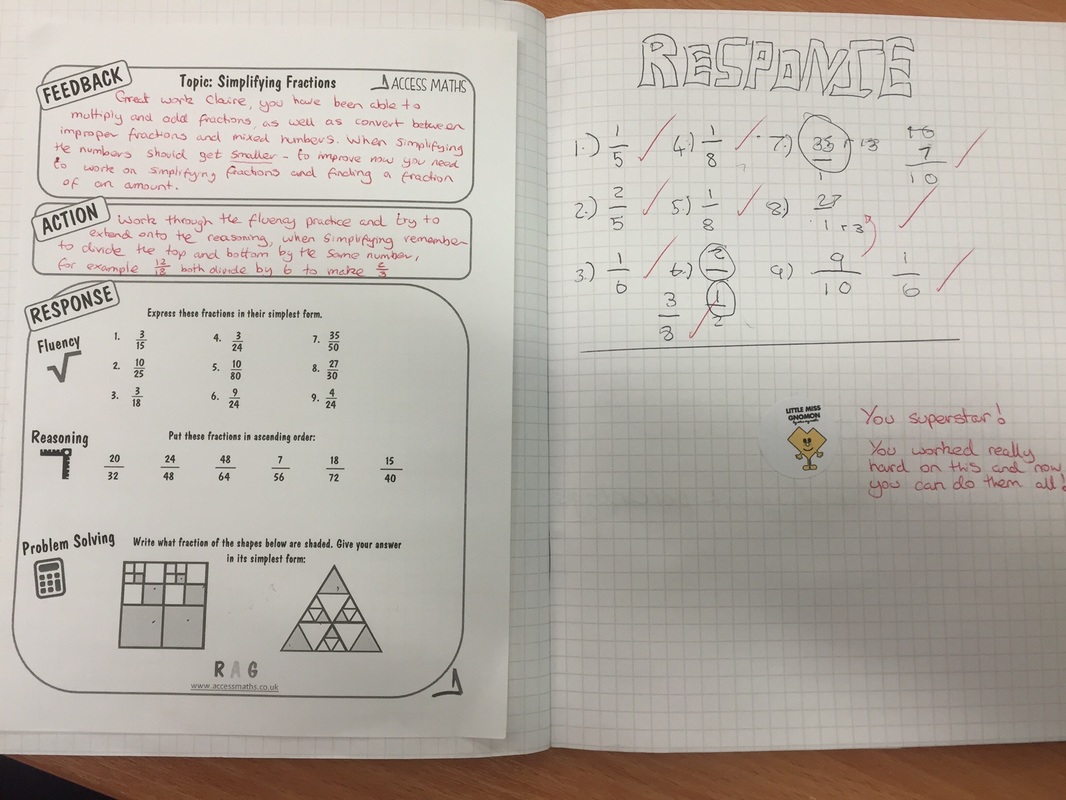
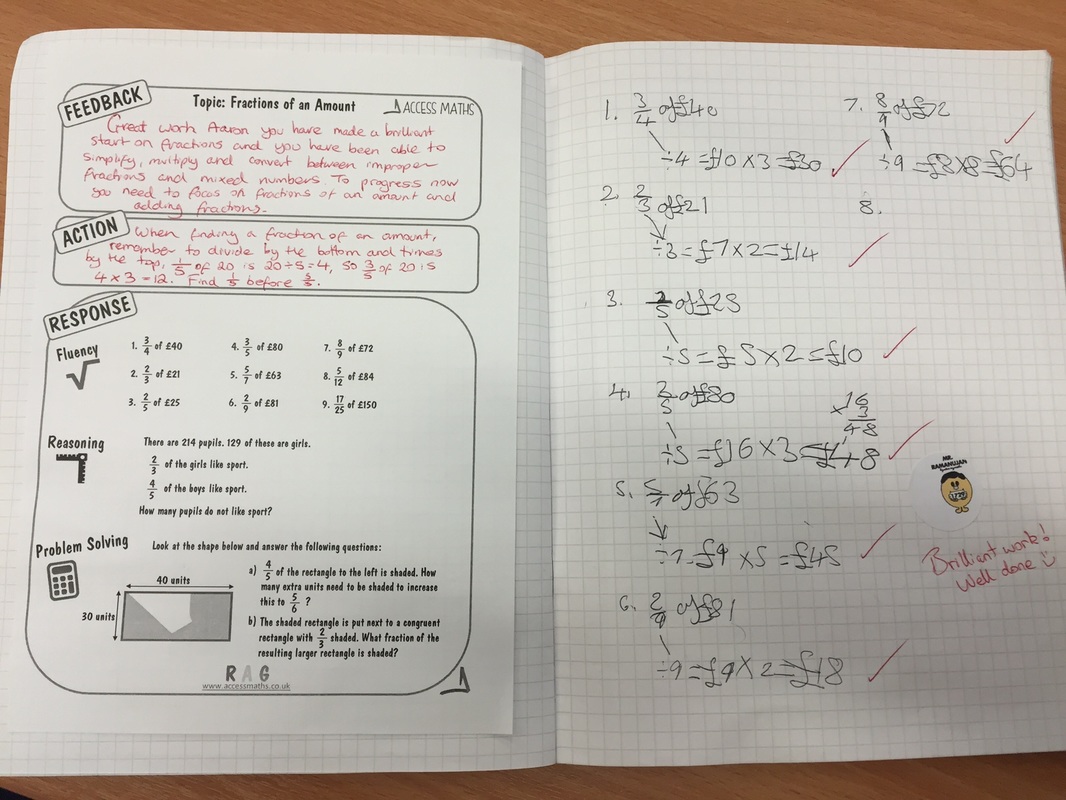
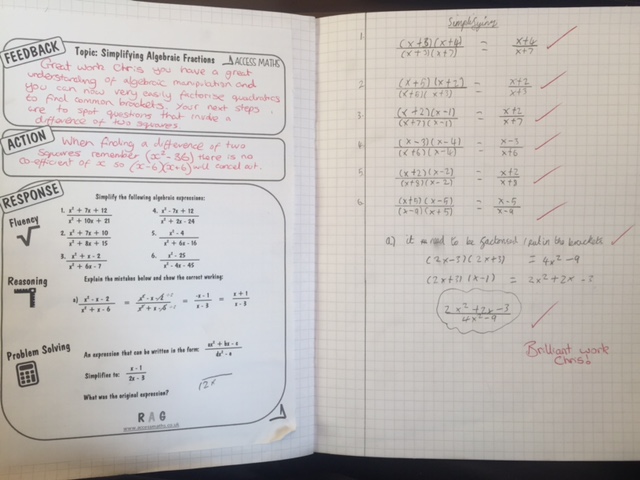
 RSS Feed
RSS Feed